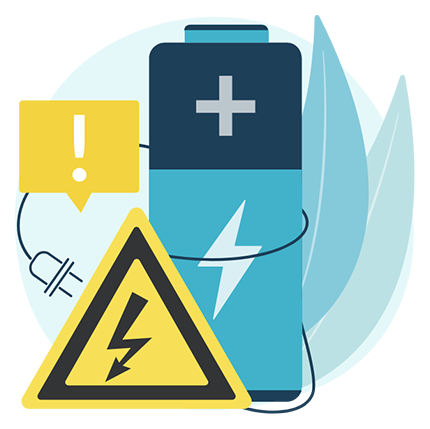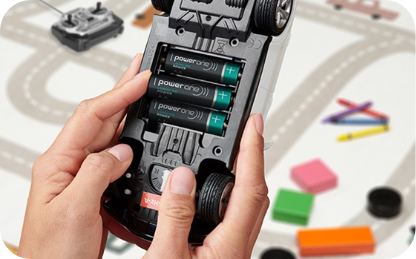Safety Information

WHAT HAPPENS WHEN A BATTERY LEAKS?
Zinc-carbon and zinc-chloride batteries are the most sensitive batteries available in stores. Which batteries are the safest? And what should be done if batteries leak in a device?
WHY DO BATTERIES LEAK?
In zinc-carbon and zinc-chloride batteries, zinc is gradually and evenly depleted. Batteries can start to leak as they are used and discharged, allowing battery fluid to escape. Completely discharged zinc-carbon batteries can also cause the battery compartment to become sticky if they have been in the device for a long time. This occurs because the container is in a constant state of dissolving, allowing acid to escape from the casing.

WE PUT SAFETY FIRST!

power one produces alkaline manganese batteries, among others. The advantage of these batteries is that the electrodes are inside a steel container. At the open end of the steel container, alkaline manganese batteries have a synthetic seal to prevent leaking. In addition, a liquid sealant is applied between the container and the seal to cover minute irregularities in the steel surface. During use or storage of the batteries, the steel cannot be attacked by the electrolyte or electrodes. This is achieved through special refining (coating) of the steel.
WHAT IF THE BATTERY LEAKS ANYWAY?
If they are unusually warm, have a strange smell, are discolored or disfigured in any way, the batteries are defective. If salts have formed on the battery, this is what is blocking the contacts and the battery should be disposed of properly. If battery fluid has escaped from the battery, the battery compartment and the contacts of the switched off and unplugged device can be cleaned with a damp cloth.

